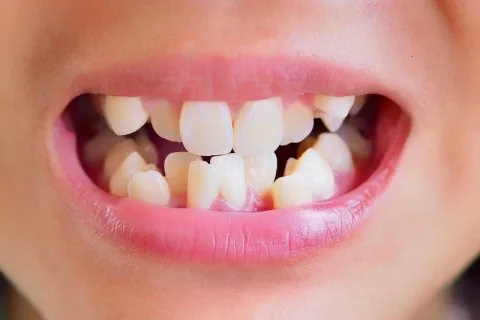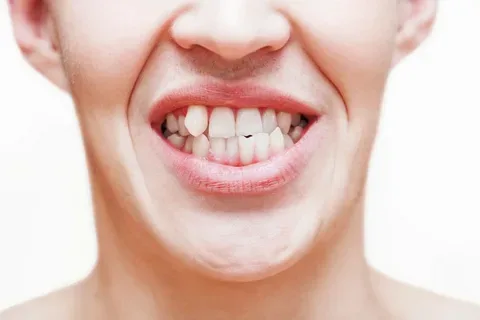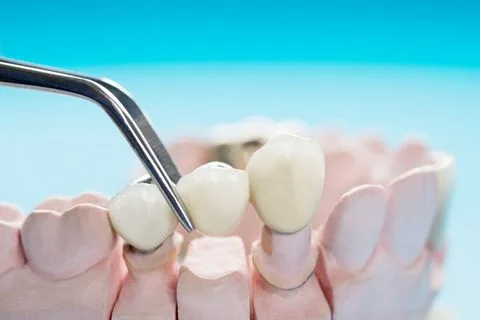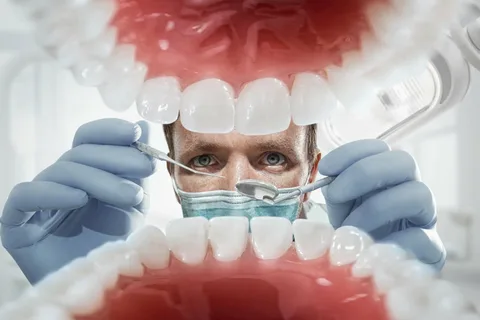TREATMENTS
Crooked Teeth Treatment in Lahore
Crooked Teeth
Crooked teeth can affect not only the appearance of the smile but also oral health. They may contribute to difficulties in cleaning the teeth properly, leading to an increased risk of tooth decay and gum disease. Additionally, misaligned teeth can impact bite alignment, potentially causing issues like jaw pain or difficulty chewing. Orthodontic treatment is often recommended to correct crooked teeth.

- Functional Impairment
- Aesthetic Concerns
- Speech Difficulties
- Preventing Tooth Migration
- Preserving Bone Health
- Improving Oral Health
- List Item #1
- List Item #2
- List Item #3
Types Of Crocked Teeth

Overcrowding
Insufficient space in the jaw for teeth to fit properly. Crowded appearance, difficulty cleaning between teeth, increased risk of decay and gum disease.

Spacing Issues
Excessive space or gaps between teeth. Gaps or spaces between teeth, potential speech issues, aesthetic concerns.

Overbite
The upper front teeth overlap significantly with the lower front teeth. Overlapping appearance, potential impact on speech and chewing

Midline Misalignment
The center of the upper front teeth does not align with the center of the lower front teeth. Asymmetric appearance, potential impact on bite and jaw alignment.
CAUSES OF CROOKED TEETH
The most significant factor is often genetics. If your parents had crooked teeth or a misaligned bite, there’s a higher likelihood that you may also experience similar dental issues The size and shape of the jaw can influence the alignment of teeth. If the jaw is too small to accommodate all the teeth comfortably, it may lead to crowding and misalignment.
Genetics
The most significant factor is often genetics. If your parents had crooked teeth or a misaligned bite.
Jaw size and shape
The size and shape of the jaw can influence the alignment of teeth. If the jaw is too small to accommodate all the teeth comfortably.
Lack of permanent teeth
If a person is missing some permanent teeth, the remaining teeth may shift to fill the gaps.
Malocclusion
This refers to a mismatch in the sizes of the upper and lower jaws, resulting in an improper bite.
Crooked teeth
Symptoms of Crooked Teeth
- Aesthetic concerns
- Difficulty cleaning teeth
- Speech difficulties
- Chewing and biting issues
- Jaw pain and headaches:
- Tooth wear
How To Take Care Missing Teeth
Taking care of your oral health, especially when you have missing teeth, is important to prevent complications and maintain overall well-being. Here are some tips on how to care for missing teeth:
Floss Regularly: Floss between your remaining natural teeth and around dental appliances to remove plaque and prevent gum disease. If you have dental bridges or implants, use floss threaders or interdental brushes for effective cleaning.
Use an Antiseptic Mouthwash: Rinse your mouth with an antiseptic or fluoride mouthwash to help control bacteria and maintain oral hygiene. Consult your dentist for recommendations based on your specific needs.
Visit Your Dentist Regularly: Schedule regular dental check-ups, even if you have missing teeth. Your dentist can monitor the health of your remaining teeth, assess your gum health, and address any concerns promptly.
Consider Dental Appliances If you have missing teeth, your dentist may recommend dental appliances such as bridges, dentures, or implants to restore function and aesthetics. Follow your dentist’s instructions for care and maintenance of these appliances.
FAQs
Crooked teeth can result from factors such as genetics, overcrowding, early loss of baby teeth, or habits like thumb-sucking.
Yes, crooked teeth may contribute to oral health issues, including difficulty in cleaning, higher risk of cavities, and misalignment-related problems like temporomandibular joint (TMJ) disorders.
Orthodontic treatment, including braces or aligners, is effective for correcting crooked teeth and is commonly initiated in adolescence, but adults can also benefit from treatment.
Missing teeth can lead to adjacent teeth shifting into the empty space, causing misalignment and bite problems.
Options for replacing a single missing tooth include dental implants, dental bridges, or removable partial dentures.
No, adults can seek orthodontic treatment at any age to address crooked teeth, and modern options offer discreet and comfortable solutions.

